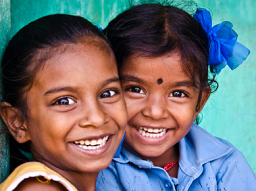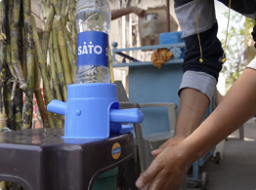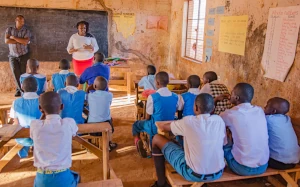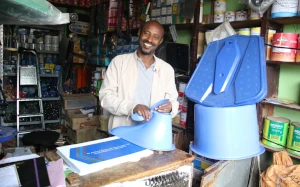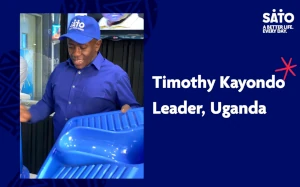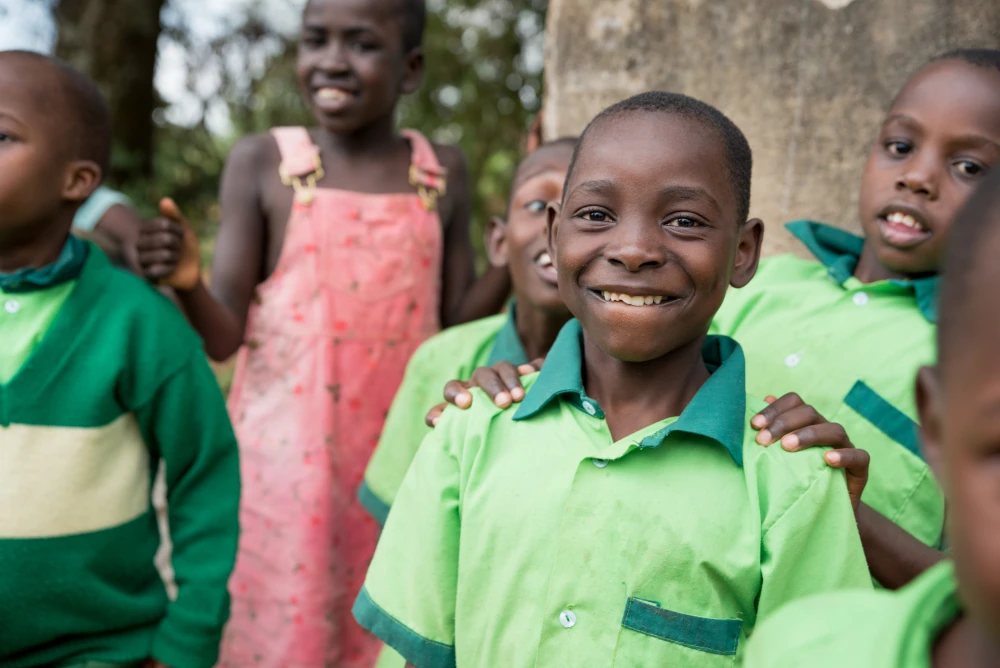
The private sector partnership accelerating access to improved sanitation across Nigeria’s rural communities
By Samuel Langat, Leader Africa, SATO
When it comes to hygiene and sanitation, Nigeria is on a mission – to deliver sustainable and safely managed hygiene and sanitation services by 2030 and end open defecation by 2025.
However, only about 25% of people have access to adequate sanitation facilities, while 23.5% defecate in the open [1]. Statistics show that this deficit costs the country 1.3% of its Gross Domestic Product (GDP) – an equivalent of $3 billion on an annual basis.
Poor hygiene and sanitation are primary contributors to water-borne diseases such as diarrhoea and the most recent cholera outbreak, which are estimated to claim the lives of approximately 70,000 children under the age of five each year[2].
Reaching these goals will require significant mobilisation. In fact, two million toilets need to be built every year through to 2025 [3]. Here, however, the private sector has the scale, innovation, and networks to support the ambition to transform everyday life through improved sanitation.
The impacts and scale are even greater when companies join together in their efforts. Reflecting a shared belief that doing good is good business, and that good hygiene and sanitation lie at the foundations of a productive local economy, our ground-breaking partnership with Indorama is paving the way for future private sector investments into sanitation.
Indorama Eleme Petrochemical Limited, a producer of polyethylene and polypropylene products and a group company of Indorama Corporation, is a global manufacturing conglomerate operating across Asia, Europe, Africa, and the Americas. Indorama’s efforts have always been to help improve the livelihood of farmers by equipping them with knowledge on best crop practices, thereby helping them generate maximum revenue from their farms.
In Nigeria, Indorama operates two of the world’s largest single-train Urea plants in Port Harcourt and is a major producer (3 million metric tonnes) and supplier of Urea fertiliser to over 32 million farmers cut across the 36 states of the federation and the Federal Capital territory (FCT), Abuja.
With SATO and Indorama’s partnership having already facilitated the installation of over 18,000 toilets in various rural communities across Nigeria, with highly positive feedback, we have laid strong groundwork for continued progress to address Nigeria’s sanitation and hygiene challenges. On top of this, every year over a four-year period, we have committed to building an additional 25,000 units of our highly accessible, aspirational, and easy-to-clean toilets. As part of this project, we will also train more than 400 masons, empowering the local community with the skills they need to sustain and maintain their improved sanitation standards for years to come.
With our partnership forecasted to impact the lives of over 400,000 people, this legacy will contribute strongly towards the development of Nigeria’s sanitation infrastructure for many years to come.
In this initiative, Indorama bought our sanitation solutions and financed the cost of installation in rural communities of Northern Nigeria. Our feedback shows that farmers are delighted that Indorama is doing this initiative 100% free of charge and, according to feedback, local residents have seen three key advantages of our toilet product:
- It keeps away house flies and other insects.
- It prevents bad odours, creating a better overall toilet experience.
- It requires a minimal amount of water and is easy to flush.
Through this partnership, farmers, their workers, and their families, will have access to our affordable and water efficient sanitation solutions that are easy to use and maintain.
The partnership is particularly powerful because it brings quality hygiene and sanitation to areas where access has been most limited. In rural areas, almost 4 in 10 households lack basic water supply and only half have access to adequate sanitation, while close to a third practice open defecation[4]. Moreover, the funding gap for sanitation is most acute in these regions, with almost 65% of the finance needed currently unmet[5].
For many people in these communities who have not previously had the option of hygiene and sanitation, the value of improved sanitation may be unclear. However, by leveraging existing relationships with farmers to introduce new products that create health, social and economic value, others in the community see the benefits and are more open to investing to improve their own sanitation and hygiene standards.
These kinds of investments through CSR initiatives are vital for supporting the behavioural shifts needed to make sure improvements in infrastructure are matched with uptake by individuals.
By coming together, Indorama and SATO have shown that the private sector can truly work hand-in-hand to create a better life, every day, for communities.
[1] https://www.unicef.org/nigeria/water-sanitation-and-hygiene
[2] https://www.wateraid.org/ng/blog/achieving-clean-water-sanitation-and-hygiene-for-all-in-nigeria ; https://www.unicef.org/nigeria/water-sanitation-and-hygiene
[3] https://blogs.lse.ac.uk/africaatlse/2020/11/11/nigeria-shows-why-sanitation-is-at-the-heart-inequality-progress-poverty/
[4] https://www.worldbank.org/en/news/feature/2021/05/26/nigeria-ensuring-water-sanitation-and-hygiene-for-all
[5] https://www.unicef.org/nigeria/water-sanitation-and-hygiene
